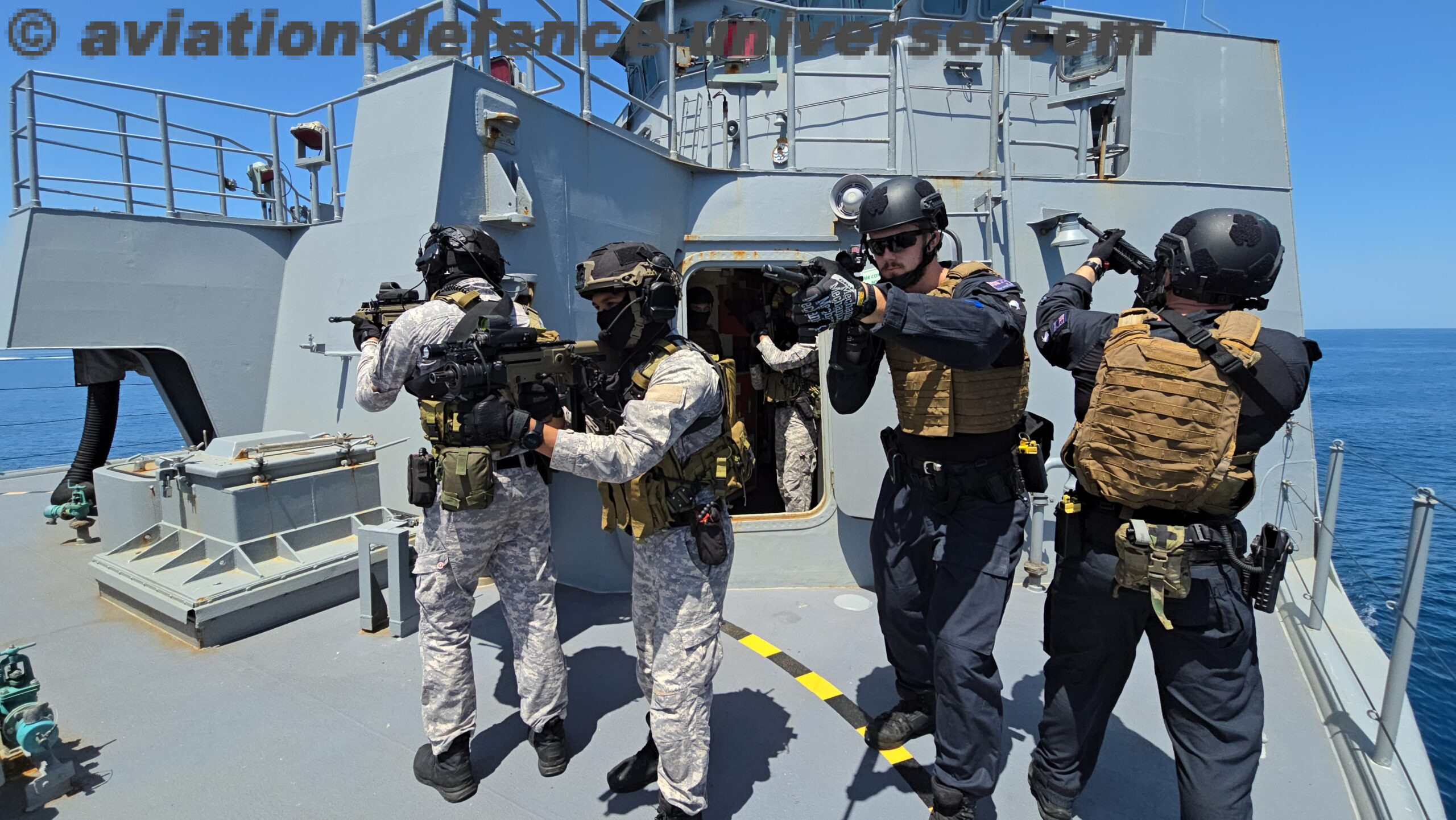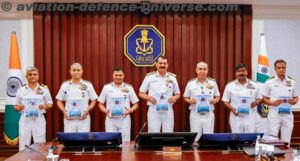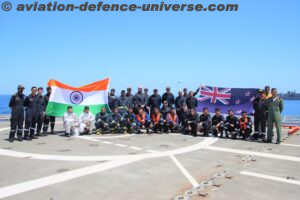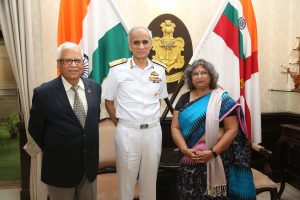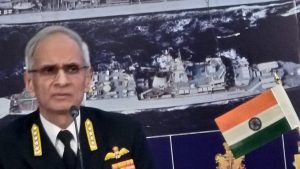By Brig. VK Atray(Retd.)
New Delhi. 04 December 2019. The last year saw a major leap in Indian Navy’s training programmes not only in numbers but also in acquirement of training technologies.
The force inaugurated a Nuclear, Biological and Chemical Training Facility (NBCTF) at INS Shivaji in Lonavala called “Abhedya” which will help train personnel of naval ships fitted with nuclear, biological and chemical detection and protection systems and also inaugurated the Medium Voltage (MV) Lab at INS Valsura will be used for training personnel on the nuances of medium voltage power generation, protection and distribution. This high-technology lab has been set where Officers and Sailors of the Indian Navy, Indian Coast Guard and friendly foreign navies are training in the field of electrical, electronics and weapon systems.
“This year, we have also taken major strides in our quest towards migrating to online recruitment. Recruitment examinations for non-UPSC Graduate Entry Officers and sailor entries have been completely migrated to an online process from this year onwards. We have also successfully conducted the maiden online Indian Navy Civilian Entrance Test (INCET) for Naval Civilians this year and are firmly on the path to expand the scope of centralised Naval Civilian Recruitment at Naval Headquarters,” the Chief of Naval Staff Admiral Karambir Singh informed.
He added that training, remains one of the Navy’s key focus areas. “Here, I would like to inform you, that in addition to the wide spectrum of specialist training undertaken in-house at our world-class training institutes, we are also a favoured training destination for many of our friendly foreign countries. Based on requests being received, we have increased the number of training vacancies for foreign trainees over the past few years from 699 to 1525,” he added.
As Indian navy grew into a truly three dimensional navy in the early 1980s, operational sea training (OST) was recognized as a necessity. By 1982, Warship Work Up Organisations (WWOs) were set up at Bombay on the Western Seaboard and at Visakhapatnam on the East Coast. With further growth of the navy WWO concept was expanded in size and scope in 1992, and an independent organisation of Flag Officer Sea Training (FOST), headquartered at the Naval Base in Kochi in the South Western state of Kerala was established. Within a short period of seven years FOST organisation has evolved into a useful catalyst for improving role-worthiness and combat capabilities of warships with a variety of different weapon and sensor fit. The Flag Officer Sea Training conducts operational sea training through three teams located at Kochi, Mumbai and Visakhapatnam covering the three major naval bases of the Indian Navy.
The teams at Mumbai and Visakhapatnam are referred to as Local Work Up Team (West) and Local Work Up Team (East) respectively. They are capable of undertaking OST of all classes of ships below Corvette size such as Seaward Defence Boats, Missile Boats, Anti Submarine Patrol Vessels, Ocean Going Tugs etc. The team at Kochi, referred to as the Indian Navy Work Up Team (INWT), is earmarked for undertaking OST of all types of major warships including Aircraft Carriers, ASW and Guided Missile Destroyers, Frigates and other fleet units.
On a ship reporting for OST, she is put through her paces during structured exercises followed by quizzes and written tests in all disciplines to assess the take off level of the individual crew members and the whole ship. The work up tasks are then tailored to meet individual ship requirements.
The Operational Sea Training imparted under the overall supervision of FOST thus ensures a comprehensive and systematic progression of the ship to achieve the prescribed performance standards to undertake the designed role of the ship and streamline ship management in totality. At the end of each work up schedule FOST conducts an operational readiness assessment at sea and certifies the ships operational status highlighting those areas that need continuation training/attention.
OST encompasses all spheres of ship board activities including every operational/combat function, aviation, ship management, hull, seamanship, NBCD, engineering, electrical, logistics and medical. OST imparted by FOST provides focused attention to material, maintenance, crew proficiency and ship management in a holistic, non-attributable and objective manner.
OST is undertaken in four phases in harbor and at sea covering single ship, multi-ship and ship/submarine/aircraft multi-dimensional operations. The FOST also conducts smaller training packages such as Sea Safety Checks (SSC) and Operational Sea Checks (OSC) for a duration of 7 – 10 days on any 2/3 selected disciplines like Bridge Work, Damage Control and Fire Fighting, Machinery Breakdown Drills and Ship Safety.
The Indian Navy has a full-fledged Training Command, which is located at the picturesque
port city of Kochi, Kerala in South India. The Commander-in-Chief Training Command is also the
Commander-in-Chief of the Southern Naval Command, thus wearing two extremely important hats
simultaneously.
The Training Command is functionally responsible for the organisation, conduct and
overseeing of all basic, professional and specialist training throughout the Navy. To enable this, the
Training Command continuously evolves policies, formulates syllabi, reviews and restructures the scope of training in various schools and establishments. The Command also coordinates, monitors and controls the day to day training activities of the schools and establishments and also conducts various waterman ship, adventure and sports activities.
The overall responsibility for policy issues relating to training in the Navy rests with the Chiefof Personnel (COP) at Integrated Headquarters, Ministry of Defence (Navy), New Delhi, whodischarges this responsibility through the Directorate of Naval Training (DNT). The DNT isresponsible for liaison with various directorates at Integrated Headquarters (IHQ) and with the Central Government Agencies (MoD/ MEA) to obtain financial sanctions and promulgate training policies for implementation by the Training Command.


































